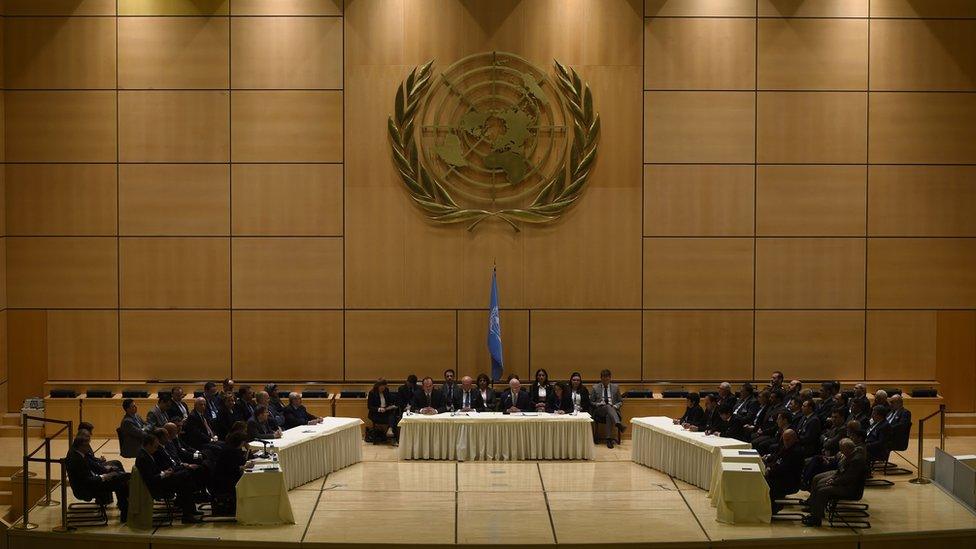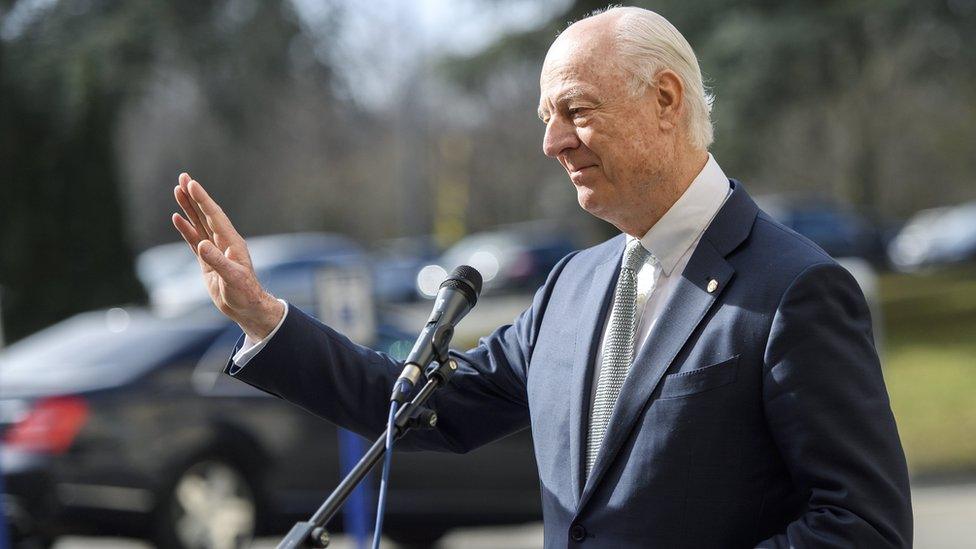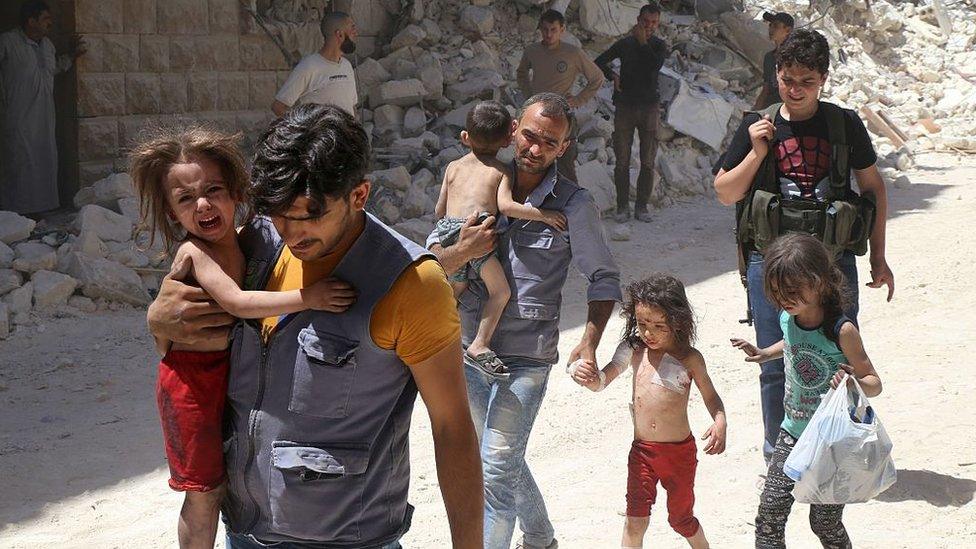Syria peace talks: Sides fail to meet on first day in Geneva
- Published

The government (left) and opposition (right) faced each other at an end-of-day welcome ceremony
The first day of Syrian peace talks at the United Nations have failed to bring the two sides together in direct negotiations.
Expectations were low as government and opposition groups arrived in Geneva for the first time in almost a year.
Staffan de Mistura, the UN's special Syria envoy, met separately with both delegations, but they did not speak with one another.
If talks proceed, they are expected to last several rounds.
The first day ended with a welcoming ceremony in the UN's grand assembly hall, which seated the opposing delegations together in the same room - but no discussion or negotiation took place.
"Let's try to work together ... I know it is not easy," Mr de Mistura told the assembled delegates.
"It is your opportunity and solemn responsibility ... not to condemn future generations of Syrian children to long years of bitter and bloody conflict."
He said that if the peace talks failed again the cost would be "more deaths, more atrocities". He added: "We can do a lot of good work while we hope the ceasefire holds."

Mr de Mistura asked delegates not to 'condemn future generations of Syrian children to long years of bitter and bloody conflict'
Mr de Mistura said that he hoped progress would be made later in the night and in the days ahead. Yet key differences remain between the two sides. The opposition has insisted that the fate of President Bashar al-Assad is on the agenda - something the government and its ally Russia have dismissed.
As the talks began, there were reports of continued violence in Syria - something UN diplomats had warned could imperil the talks at an early stage.
The conflict in Syria is technically under a ceasefire agreement negotiated with the aid of Russia and Turkey - key allies of the government and rebels - but both sides have accused the other of constant violations.
The UK-based Syrian Observatory for Human Rights (SOHR), a monitoring group, reported that government planes had carried out air strikes in the Deraa and Hama provinces. It also reported clashes between the groups in western Aleppo province.
The group said ahead of the negotiations however that the violence had been lower than in recent days.
Opposition forces also called for greater US involvement in the region, particularly in dealing with Iran, which they identified as a major obstacle to peace.
Nasr al-Hariri told reporters that Russia and Turkey had "failed to control Iran", which he said had "spread tens of thousands of sectarian fighters".
While hopes of a breakthrough at the talks are low, much has changed since the last round broke down in April 2016.

The war has left much of Syria in ruins and millions displaced
The rebels lost their key bastion of East Aleppo to government forces in December and a nationwide ceasefire (barring certain jihadist groups) has been largely holding for the past several weeks.
At least 300,000 people have been killed since the war began in 2011. More than 4.8m have fled the country and a further 6.3m have been displaced inside Syria itself.
'Political transition'
The Geneva talks follow weeks of difficult negotiations in preparation. The two sides remain far apart on key issues, including over what should even be discussed.
Mr de Mistura reiterated that the agenda of negotiations would be based on a 2015 Security Council resolution endorsing a peace process, with the following aims:
Establishing credible, inclusive and non-sectarian governance
Setting schedule and process for drafting new constitution
Holding free and fair elections within 18 months pursuant to new constitution administered under UN observation


The resolution called for "formal negotiations on [the] political transition" in Syria - a long-standing framework for peace backed by the UN.
The form of political transition however differs widely between the warring sides. The opposition insists it must include President Assad's departure, while the Syrian government says only elections can decide Mr Assad's future.
The opposition is represented at the talks by the High Negotiations Committee - an umbrella group of armed and political factions. The government delegation is led by Syria's UN ambassador, Bashar Jaafari, a veteran of previous rounds of peace talks.